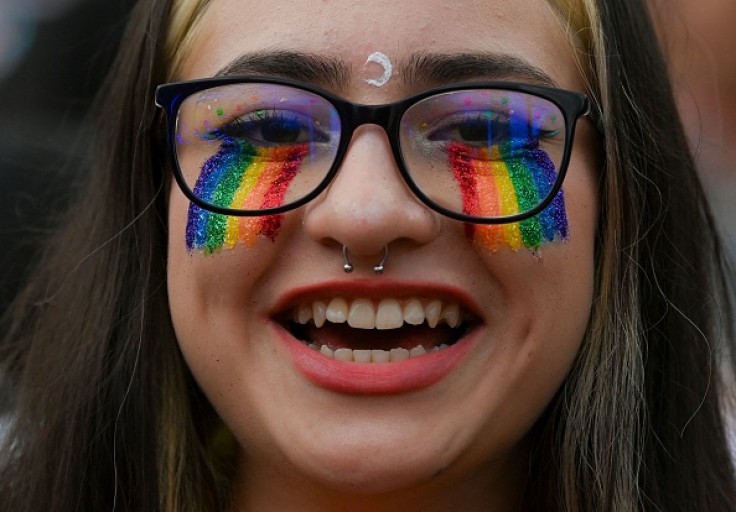
The recent Supreme Court ruling in favor of an evangelical Christian web designer who refused to work on same-sex weddings was not influenced by a request from a fake customer, according to legal experts. The case, which has sparked controversy surrounding LGBTQ rights, took a surprising turn when doubts were cast on the authenticity of a customer inquiry, leading to debates on the legitimacy of the case itself.
The focus on the alleged customer, known as Stewart, arose after web designer Lorie Smith mentioned in a previous court filing that he had contacted her in 2016 for assistance with a website for his marriage to someone named Mike.
However, an article by The New Republic questioned the existence of Stewart, as he denied ever reaching out to Smith. He revealed that he was, in fact, a web designer himself who had been married to a woman for years.
Legal Standing Upheld Despite Alleged 'Sham' Customer in Evangelical Web Designer's Case
The revelation has triggered criticism on social media, with arguments suggesting that the case should not have reached the Supreme Court if there were no genuine customers seeking Smith's services.
However, legal experts interviewed by NBC News disagreed, asserting that Smith had legal standing to bring the case forward. According to Carolyn Shapiro, a professor at Chicago-Kent College of Law, Smith had filed a pre-enforcement challenge, arguing that a Colorado state law was restricting her freedom of speech. Shapiro claimed that Smith's intention to partake in an illegal activity was sufficient justification for a pre-enforcement challenge.
In 2016, Smith filed a lawsuit expressing her desire to design wedding websites while expressing her opposition to providing services for same-sex weddings due to her concerns about the Colorado Anti-Discrimination Act. She sought to include a statement on her website making her stance clear. Jonathan Miller, an attorney and chief program officer at the Public Rights Project, expressed support for pre-enforcement review as a means to prevent the implementation of unconstitutional laws. However, he questioned its application in this particular case, given that the law had been in effect for several years.
Fake Inquiry's Relevance Dismissed by Legal Experts in Same-Sex Weddings Ruling
The presence of the seemingly fabricated inquiry in the court records has raised doubts about the facts and evidence in the case. Miller criticized the inclusion of an unverified account in the court record and suggested that it should not have been allowed. Jonathan Scruggs, senior counsel for the Alliance Defending Freedom, the organization representing Smith, maintained that Smith had no reason to believe the email was fake. He clarified that she did not respond to the email to avoid violating Colorado law.
A joint statement of stipulated facts signed by Republican Colorado Attorney General Cynthia Coffman at the time was another factor in Smith's favor in the case. Justice Neil Gorsuch cited the stipulations, which outlined various positions regarding Smith's beliefs, in the majority opinion to support the protection of Smith's First Amendment rights.
Ed Whelan, a conservative attorney supporting the court's decision, dismissed the significance of the alleged 'sham' client, pointing out that the majority opinion and dissent did not even mention it. Whelan suggested that the email could have been a prank on Smith rather than an intentional effort to deceive the court.
The ruling has been met with dissent, with Justice Sonia Sotomayor calling it "heartbreaking" and part of a reactionary exclusion towards gender and sexual minorities. However, legal experts note that the justices unanimously agreed on Smith's legal standing to bring the case. Despite the controversy surrounding the 'sham' customer, the Supreme Court's ruling stands, marking a significant decision in the ongoing discourse between religious freedom and LGBTQ rights.
Related Article : Johns Hopkins University Faces Backlash Over LGBTQ Glossary's 'Lesbian' Definition, Attempting Gender-Neutral Identities